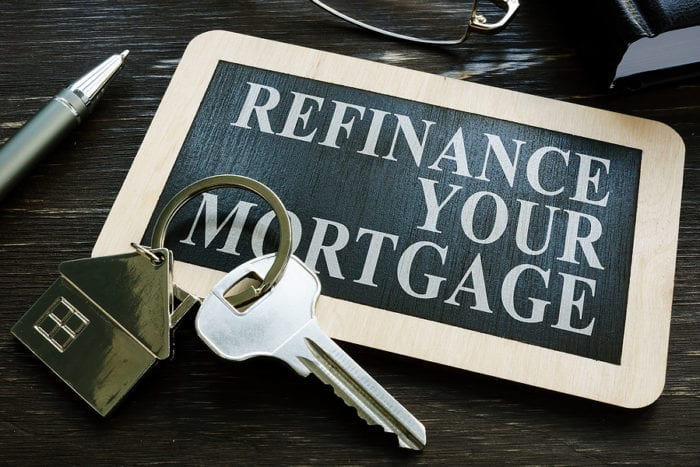When households experience financial difficulties, such as failing to pay their mortgage, accumulating debt, and facing foreclosure, homeowners often approach the bank for a refinance. Banks denying this request can be a death blow to a desperate applicant, and may lead to losing their home. However, there is hope amidst this tragedy. Private lenders’ second mortgages can serve as a financial lifeline, offering immediate access to home equity to meet urgent financial needs. This article explains why banks may deny you, how homeowners may find alternatives to credit in the form of a second mortgage, and how to preserve their home.
Common Reasons Banks Deny Refinancing or Credit
Traditional banks must adhere to strict lending criteria. This can include income history, credit score, and payment history. Denials are incurred as a result of inconsistent income or falling outside the norm that banks observe. Applicants who are self-employed or have inconsistent income tend to struggle the most in achieving acceptance.
Poor credit may also result in a denial, as low credit ratings indicate a higher risk of default, which is also associated with late payments and bankruptcies. Missed payments naturally put the borrower in question as a risk to lend to, thus increasing the chance of rejection. As a result, borrowers often have to resort to loans offered by private lenders. They’re more flexible, but with this comes higher interest rates.
Homeowners need to be aware of their financial profile and work to improve their credit history, such as by providing regular proof of income and paying down debt. This will increase their chances of success in refinancing.
What a Second Mortgage Is and How It Works
A second mortgage is a loan that uses the homeowners’ property as collateral. It is second to an existing primary mortgage, and it refers to a second loan with less priority compared to the original primary mortgage. Second mortgages are typically loaned to homeowners who need quick money for pressing obligations, such as paying arrears, consolidating high-interest debts, or covering an immediate expense.
Second mortgage arrangements often come with shorter terms, and interest rates tend to be higher than those for a primary mortgage. However, it allows the borrower to access a substantial amount of home equity in a relatively short period. Payments for a second mortgage are simultaneous with those of an existing first mortgage. The homeowner should plan their budget around these payments; otherwise, they may fall further into financial distress.
How Private Lenders Assess Risk Differently From Banks
Private lenders use a different risk-assessment model than traditional banks. Private lenders examine property value and equity, rather than relying on credit scores and income stability. Equity is used as security, reducing the lender’s risk and facilitating approvals that a bank would have denied for refinancing credit.
Private lenders have more room to negotiate and accommodate borrowers with difficult financial circumstances as they often understand temporary setbacks better and are much more willing to explore the circumstances that lead to arrears, bankruptcy, or credit issues. Their approach enables homeowners to access funds and stabilize their financial situation.
The Role of Home Equity in Qualifying for a Second Mortgage
When it comes to a second mortgage, home equity assumes great importance. Equity is the difference between the property’s market value and the remaining balance on the original mortgage. Lenders will prioritize equity first because it is considered their safety margin. Private lenders approve loans based on the available equity, which can range up to 75% of the appraised value of the home.
Homeowners with substantial equity available in their properties have an easier time securing second mortgages. Borrowers with lower credit scores, income instability, and other factors may even gain access to cash quickly. To be precise on the equity value of your property, a professional appraiser is hired to gauge the value of the home. They will inform the homeowner of how much they can borrow, enabling them to plan intelligently for the future.
Costs and Risks to Consider Before Taking a Second Mortgage
Even if second mortgages can grant relief, homeowners need to be aware of the associated risks. Interest rates can be steep for second mortgages. Plus, you may need to pay upfront costs such as appraisal fees or attorney fees. These expenses can quickly accumulate and must be factored into the total cost of borrowing.
Defaults on second mortgages also include a risk of power of sale. As you can imagine, second mortgages are secondary to primary mortgages. As a result, private lenders tend to be quicker in recovering missed payments. Homeowners should have a sound repayment plan or, at least, maintain open communication with their lender when facing a financial crisis.
How to Apply for a Second Mortgage Quickly When Facing Urgent Deadlines
Homeowners must be quick when cornered by the power of sale. Start gathering documents whose necessity will depend mainly on each particular case. Examples of such documents include proof of home ownership, personal identification, mortgage statements, and property appraisals. The faster the documentation is organized, the quicker the entire process can begin, and the faster the lender’s decision will be made.
Homeowners should consult experienced private lenders or mortgage agents, clearly explaining the emergency driving their financial needs. Good brokers will connect them with the best private lenders and negotiate the most favourable terms for express approval. Private lenders can approve loans in days during urgent crises, while banks often take weeks.
Discovering why a traditional institution rejects an application and considering obtaining a second mortgage can help homeowners achieve financial stability. Home equity can prevent foreclosure, cover urgent financial needs, and support long-term stability for homeowners. Quick thinking, intelligence, and sound planning make a good recipe for attested long-term economic health.






